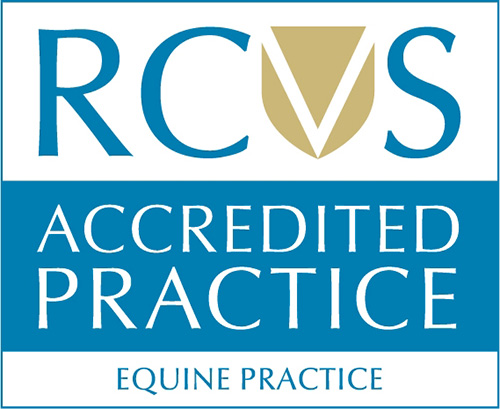Choke
What Is It?
‘Choke’ can be a very scary experience for owner and horse alike. The name is misleading, as it refers to an obstruction (usually food) in the oesophagus (food pipe) rather than the trachea (wind pipe).
The most common sign of choke is sudden coughing, wretching and discomfort immediately after eating. This is often followed by saliva and food pouring from the horse’s nostrils. It can look extremely dramatic but will often pass quickly.
What Should I Do?
It is advisable to call your vet if your horse starts choking. They may give advice over the phone, or head over for a visit if the choke does not clear rapidly by itself. Whilst waiting for the vet, you should take all food away and let the horse rest quietly. We don’t advise trying to ‘flush’ the choke yourself using syringes or a hosepipe, as the horse may breathe in the excess water.
What Will The Vet Do?
On arrival, the vet will examine your horse thoroughly. We often sedate these horses quite heavily, to allow them to fully relax their neck. In some cases, this is enough to allow the blockage to pass, and the horse can wake up from sedation feeling much better. If the choke persists, then the vet may pass a stomach tube down your horse’s throat to aid with clearing the blockage.
Will My Horse Be Okay Afterwards?
In most cases, once the obstruction has cleared the horse is immediately much happier. We normally advise that they are starved for a while to rest their oesophagus in case of inflammation. Occasionally, choke may have some lasting side effects such as chest infections or damage to the oesophagus that may require ongoing intervention, but this is rare.
Will It Happen Again?
There are a few things you can do to reduce your horse’s chances of getting choke. These include:
- Regular dental checks to make sure they can chew properly.
- Altering the horse’s diet to make feed more ‘sloppy’.
- Slowing down their eating if your horse is prone to gobbling! This can be done by putting a brick in their food bowl that they have to eat around.
- Increase turnout–it is very difficult to choke on grass!
- Not feeding large chunks of solid vegetables such as turnip or swede.
This articles also appears on our Horse Health Programme website:
https://www.horsehealthprogramme.co.uk
To view/download a copy of this information in PDF format, please click here.
-
Previous
-
Next

